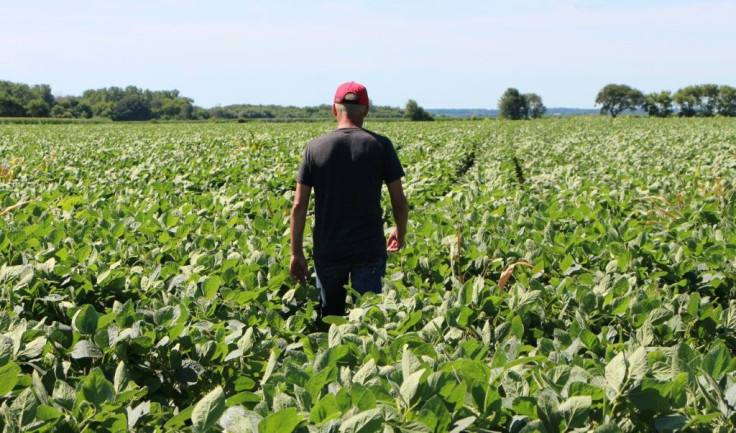Senate Democrats Slam Trump's $16 Billion Farm Bailout, Allege That It Favors Southern Farmers Over Midwest

A report released Tuesday by Senate Democrats harshly criticized President Trump's $16 billion farming bailout amid the ongoing trade war with China. The report alleges that the Market Facilitation Program (MFP) helps wealthy farms and foreign companies over poor farms and that it favors Southern farmers over those in the Midwest and Northern Plains.
"Over the past two years, President Trump has pursued a chaotic trade agenda that has created unprecedented uncertainty for American agriculture," the report says. "In the bipartisan 2018 Farm Bill, Congress provided balanced support to help farmers manage market instability across the country. The administration upends this careful compromise, replaces income from markets with government payments, create vast inequalities, and does not address the actual trade damage to farmers who have been hit the hardest."
The report claims that farmers in the South have received the most in payments from MFP, but that the money should instead go more toward farmers in the Northern Plains and Midwest region, who have been hardest hit by Trump's tariffs.
The trade war with China has caused farmers to have trouble selling their goods to the Asian country. Mental health experts say that suicides are rising among farmers, with more phone calls to the suicide hotline coming from mostly rural states such as Wisconsin.
Michigan Sen. Debbie Stabenow, the ranking member on the Senate's Committee on Agriculture, wrote a letter to Agriculture Secretary Sonny Perdue accompanying the report. "This Administration's chaotic trade agenda has irreparably harmed farmers, on top of the market instability and extreme weather changes they already face," the letter said, which was signed by 14 other Democratic Senators.
"While we appreciative feedback on this program, the fact of the matter is that the USDA has provided necessary funding to help farmers who have been impacted by unjustified retaliatory tariffs," the Department of Agriculture said in a statement.
Trump and China are currently negotiating on "phase one" of a trade deal which would involve Trump rolling back on tariffs in some form in exchange for China buying U.S. agricultural goods.
Trump on Tuesday told the Economic Club that China is "dying to make a deal" to resolve the trade war.
The trade war with China is part of Trump's "America First" policy, which seeks to implement tariffs on China in order to ultimately bring back American manufacturing. The tariffs have had unexpected consequences on the economy, not only on agriculture but also on the American consumer. Large retailers such as Walmart have said that they would be forced to raise prices during the trade war due to the higher cost of goods.
© Copyright IBTimes 2025. All rights reserved.





















